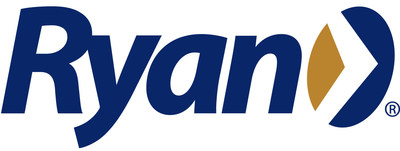DALLAS, July 22, 2014 /PRNewswire/ -- Pennsylvania HB 278 was adopted on July 10, 2014. This expansive legislation touches on many different aspects of law, several of which are pertinent to unclaimed property holders. Definitions have been modified and expanded, such as provisions expressly including electronic contact to rebuff the presumption of abandonment, specifically for "secure or password-protected electronic contact, communication or transaction" as permissible contact. The legislation also provides for the expansion of contact "by other criteria provided by the State Treasurer," which would allow for further expansion by rules, regulation, or office policy. Additionally, the definition of record is expanded to allow for both physical and electronic records, specifically allowing a record "that is inscribed on a tangible medium or that is stored in an electronic or other medium and is retrievable in perceivable form."
Dormancy periods for unclaimed property that are currently five years have generally been reduced to three years. Qualified gift certificates (i.e., those without an expiration date and any post-sale service fees) remain exempt. Although, for all other gift certificates and gift cards, they become unclaimed if: (i) they remain unredeemed for two or more years after the redemption period has expired or after the "minimum period specified in section 915(c) of the Consumer Credit Protection Act (Public Law 90-321, 15 U.S.C.section 1693l-1(c))," or (ii) they remain unredeemed for three years or more from the date of issuance if no redemption period is specified. The dormancy period will be three years for individual retirement accounts or similar plans that are not subject to a mandatory distribution requirement after (i) the owner has attained an age of seventy and one half (70.5) years, or (ii) three years after the owner has "indicated an interest in the account or plan or in other property of the owner in the possession, custody or control of the holder."
The section addressing enforcement has been rewritten and expanded. One such expansion grants that the "State Treasurer may contract with any other person to conduct the examination on behalf of the State Treasurer, the selection of whom shall not be questioned." Examinations may be conducted "even if the person believes it is not in possession of any property that must be reported, paid or delivered under this article." Upon meeting specified notification requirements, the "State Treasurer at reasonable times may examine the records of an agent, including a dividend disbursing agent or transfer agent, of a business association or financial association."
While documents and working papers obtained by or compiled by the State Treasurer related to an audit are generally deemed confidential and not public records, allowable uses for such documents are named, including the expected purpose of being used to collect unclaimed property. The legislation also allows for documents and working papers to be "disclosed to the abandoned property office of another state for that state's use in circumstances equivalent to those described in this subdivision, if the other state is bound to keep the documents and papers confidential." Also they can be "used in joint examinations conduced with or pursuant to an agreement with another state, the Federal Government or any other governmental subdivision, agency or instrumentality."
Furthermore, the new provisions allow for assessments of the cost of an audit if an audit "of the records of a holder results in the disclosure of property reportable under this article the State Treasurer may assess the cost of the examination against the holder at the rate of $200 a day for each examiner." Additionally, it is within the State Treasurer's authority to assess "a greater amount that is reasonable and was incurred"; however, "the assessment may not exceed the value of the property found to be reportable." For failing to report and pay without good cause, a holder "shall pay a penalty not to exceed one thousand dollars ($1,000) per day" beginning on the day after the report should have been filed and the corresponding property remitted, although the legislation permits for all or a portion of this penalty to be waived by the State Treasurer for good cause. For non-compliance in addition to other permitted sanctions, a person "shall be guilty of a misdemeanor of the third degree and shall, upon conviction, be sentenced to pay a fine not to exceed one thousand dollars ($1,000) for the first offense. A person who is found guilty of a subsequent offense shall be subject to a fine not to exceed five thousand dollars ($5,000)."
The legislation expands provisions governing the application and registration of finders. It also addresses finder conduct and renewal and revocation of finder registrations.
The unclaimed property provisions delineated in the Bill take effect immediately (i.e., on July 10, 2014), except that the penalties associated with a third-degree misdemeanor take effect in 180 days from the Bill's effective date.
About Ryan
Ryan is an award-winning global tax services firm, with the largest indirect and property tax practices in North America and the sixth largest corporate tax practice in the United States. Headquartered in Dallas, Texas, the Firm provides a comprehensive range of state, local, federal, and international tax advisory and consulting services on a multi-jurisdictional basis, including audit defense, tax recovery, credits and incentives, tax process improvement and automation, tax appeals, tax compliance, and strategic planning. Ryan is a three-time recipient of the International Service Excellence Award from the Customer Service Institute of America (CSIA) for its commitment to world-class client service. Empowered by the dynamic myRyan work environment, which is widely recognized as the most innovative in the tax services industry, Ryan's multi-disciplinary team of more than 1,800 professionals and associates serves over 9,000 clients in more than 40 countries, including many of the world's most prominent Global 5000 companies. More information about Ryan can be found at www.ryan.com.

Available Topic Expert(s): For information on the listed expert(s), click appropriate link.
Mark Paolillo
http://www.profnetconnect.com/markpaolillo
TECHNICAL INFORMATION CONTACTS:
Mark A. Paolillo
Principal
Ryan
857.362.7522
mark.paolillo@ryan.com
Susan Han
Principal
Ryan
442.244.2447
susan.han@ryan.com
Logo - http://photos.prnewswire.com/prnh/20140716/127737
SOURCE Ryan
